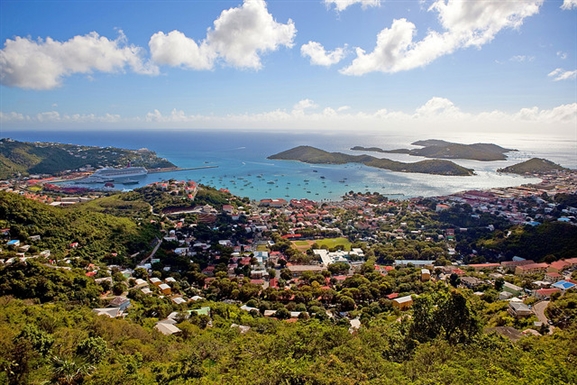U.S. Virgin Islands Could Offer Online Gambling
Posted on: November 7, 2013, 05:30h.
Last updated on: February 4, 2015, 07:45h.

Most Americans know the U.S. Virgin Islands for warm weather and beautiful beaches that they can visit without having to get a passport. But thanks to a recent ruling from the islands’ Attorney General, this vacation spot may soon become just as well-known as a home for online gambling.
Attorney General Weighs In
V.I. Attorney General Vincent Frazer issued an opinion to other Virgin Islands officials, stating that the 2001 V.I. law that allowed for Internet gambling companies to operate in the country would not clash with any federal laws in the United States, meaning that the law could finally be used to allow the territory to host Internet gambling companies. Until now, the territory had held off on actually allowing any online gaming to go forward, because of warnings issued from the federal government.
However, as is often the case in these situations, things aren’t quite that clear cut. The law only allows for two companies to operate as “master service providers” in the territory, shutting out any other potential operators. And at least one of those companies says that they’ve lost most of their investors in the 12 years since the law has passed, due to the uncertainty around whether or not they’d ever be able to offer online gaming to players.
Major Economic Impact
But if the two companies were allowed to go forward with offering online gaming worldwide now, it could have a huge impact on the territory. According to Nick Pourzal of USVI Host – one of the two companies that could offer Internet gaming under the current law – he estimates that as much as $30 million could go into the territory’s General Fund if both companies were operating at full capacity.
Frazer’s opinion wasn’t entirely positive, however. Over six pages, the Attorney General gave many cautionary notes, including the fact that the Justice Department has changed its mind several times on exactly what states were permitted to do, and that legislation at the federal level could still change the game, as happened when Congress passed the Unlawful Internet Gambling and Enforcement Act (UIGEA) in 2006.
“I opine that the Virgin Islands Internet Gaming and Gambling Act is legal on its face,” Frazer wrote. “However, caution should be the rule because the pitfalls are in the implementation of the law.”
Frazer also showed concern over just how far his opinion should be taken, and exactly how much would be allowed under federal law.
“There is concern whether the use of the V.I.’s Internet gaming and gambling platform may be used by persons outside of the Virgin Islands and not run afoul of the federal law.”
Still, the Casino Control Commission of the Virgin Islands has hailed the opinion as a significant step towards turning the territory into an online gaming hub. According to the Commission’s Acting Chairwoman, Violet Ann Golden, the Virgin Islands is already working on agreements with states such as New Jersey that have approved online gambling, both to form strategic partnerships and to help regulate off-island play on their sites.
The Virgin Islands Legislature may have something to say about how Internet gambling works in the territory as well. Senators such as Nereida Rivera-O’Reilly want to amend the 2001 act in order to allow more companies to have the chance to compete for licenses. According to Rivera-O’Reilly, many of the principals in the two companies designated as master service providers were government insiders at the time of the law’s passage, and she plans to introduce an amendment to open up the licensing process to competitive bidding.
“We must learn from our mistakes and make sure we do this properly, so that no one can come in here and try to stop us,” Rivera-O’Reilly said.
Related News Articles
Game of War: Fire Age Not “Illegal Gambling Device,” Rules Federal Judge
Most Popular
LOST VEGAS: ‘Tony The Ant’ Spilotro’s Circus Circus Gift Shop
Las Vegas Overstated F1 Race’s Vegas Impact — Report
Mega Millions Reportedly Mulling Substantial Ticket Price Increase
Las Vegas Strip Stabbing Near The Strat Leaves One Man Dead
Most Commented
-
End of the Line for Las Vegas Monorail
— April 5, 2024 — 90 Comments -
Mega Millions Reportedly Mulling Substantial Ticket Price Increase
— April 16, 2024 — 6 Comments -
Long Island Casino Opponents Love New York Licensing Delays
— March 27, 2024 — 5 Comments














